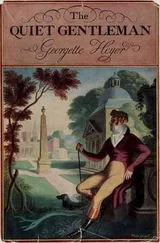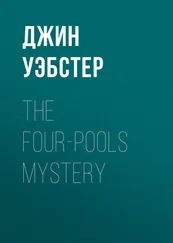But the frontal assault on the new monogamy came not from without, but within.
The three key elements were in place almost from the outset, but it took a decade and a half for the synergy between them to jell. The brave notion that people are not by nature either sexually or emotionally monogamous was already in circulation, quietly promulgated by a new school of human-growth therapists such as the Dales and pioneer researchers like the Constantines. (Books by both were in the hyper, though Christopher passed on reading them.)
On the parenting front, with two-child two-earner families increasingly the norm and one-parent families still all too plentiful, there was a continuing crisis in child care. Millions were wrestling with the unhappy alternatives of toddler warehouses and the unrewarding solitude—for child and parent alike—of home.
And—the final straw—home was more likely than not to be rented space. The bloated national debt and a minor worldwide recession had blessed credit sellers with rates high enough to squeeze even the middle class out of owning a decent house. (Here Christopher ignored another lengthy side-thread, this time on the “leveraged prosperity” of the Conservative Revolution.)
All three problems had a single solution, and thousands of families found it on their own. A third person or second couple meant an extra income, extra hands, siblings for the solo child, sexual variety with security. For those who could solve the jealousy riddle, the “big houses” were stronger economic units, stronger emotional units—stronger families.
But it was not until a California woman named Jennifer Allison and her two husbands offered their relationship up for dissection that the question of group marriage entered the national dialog. With the assistance of the Bush Foundation for Freedom, the Allisons sued for the right to a contract marriage under their state’s “lezzie law.” The issues were the same—custodial rights, spousal rights, taxes and insurance, wills and inheritances—and the arguments on both sides had a familiar ring.
Even so, the story was a media sensation, and Allison, Allison Allison v. The State of California went all the way to the U.S. Supreme Court before finally being resolved 6-5 in favor of the plaintiffs. The case turned on the narrow issue of what, for federal purposes, was a family and what was merely a household, with the Court’s opinion introducing a genteel euphemistic coinage for the Allisons’ arrangement: extended monogamy.
The ruling was less controversial than it might have been thanks to the influence of Sharon Ferraro’s extraordinary novel While Life Is Still in Us, Let’s Love All We Can , which had appeared earlier that year. A fictionalized first-person account of the trials and triumphs of Ferraro’s own extended marriage, the book became a best-seller on three continents. Its title became a cultural catchphrase, a rallying cry for millions hungry for a taste of the riches of the heart.
In the wake of the Allison ruling, Congress rushed to regulate what the Court had blessed. Predictably, the central issues were muddied by irrelevancies: precontact AIDS testing; a schedule of renewals (with more testing) ranging from a one-year “compatibility” renewal running out to a fifteen-year “life” renewal; a counseling and mediation requirement.
The last was the work of the American Psychological Association’s heavyweight lobbyists. For more than a decade, the APA membership had been in a professional quandary, with the meaning of the old labels “counselor” and “therapist” being debased and diffused by the likes of color therapy and spirit counseling on the one hand, and by AI query-psych engines with names like Sigmund, Eliza, and Dr. Chip on the other.
Developing the model curriculum and certification for “relationship technology” was the first step toward redefining the APA’s mission and elevating their credibility. A clever campaign against the do-it-yourself psychware, pushing the idea that “people need people,” was the second. Persuading the authors of the national Family Integrity Act to mention relationship technology in the section requiring family counseling was the clincher. Every Dale family—and, in time, a fair fraction of what were now called “pair” families—would have its “Uncle Arty.”
Behind the high-tech label and its folksy derivation, though, was old-fashioned goal-oriented therapist-assisted self-examination. Be it transactional analysis or power dynamics, reality therapy or Klersen System, it still came down to inviting a stranger to tinker with your emotional machinery. And there was nothing in the hyper that could make Christopher any happier about that prospect.
Meyfarth allowed Christopher to tell his version of the baby-making blowup and the John Fields fiasco. The arty listened patiently and sympathetically, asking only a few questions to clarify minor points.
“I’m sure they told you I’m being selfish,” Christopher concluded. “Is it selfish to want to be happy? Am I obligated to say yes when I don’t want to? Why is it me that should have to adjust?”
“I’d like to come back to those issues a bit farther down the road.”
Christopher eyed Meyfarth suspiciously. “I thought that was what we were here to talk about.”
“And ultimately we will—when you’re ready to answer your own questions.”
“I already have answers. The problem is that no one accepts them.”
“Including yourself,” Meyfarth said, “or that fact would not trouble you.”
“What troubles me is that if I follow my conscience I’ll kill the family,” said Christopher. “They’ve put me in a position where I can’t win. And they can’t lose. Either they’ll turn me into the man they want or they’ll turn me out and find another.”
“Something like that has already happened to you once, hasn’t it?” asked Meyfarth.
“No,” Christopher said. “I left that one myself.”
“I see. Perhaps this is a good time for me to hear about your marriage. You were living in San Francisco then?”
“I don’t see what my marriage has to do with what I’m here to work on.”
“The common element is you,” Meyfarth said simply.
“But it’s old news,” said Christopher.
“Do you really think that a relationship that serious which ended that unhappily had no effect on how you approached your next bonding?”
Christopher looked away. “I know what effects it had.”
“You were really quite young,” Meyfarth said. “How did you come to marry Donald and Kristen?”
The question took Christopher away from Meyfarth, two years and two thousand kilometers away. “Donald was my friend,” he said. “We were both working for DIANNA in San Francisco, in the updates group. I was a year out of school. Kristen—I met Kristen at a musicbox down in Santa Cruz. She was a singer, though I didn’t know that when I met her. Terrific energy.”
“What did she look like?”
A little smile. “Tall. Very tall. A graceful gazelle. Chestnut-brown hair, what people call laughing eyes. I’d phone her now and again, and things would get pretty warm. And sometimes she’d come up for an evening, a few friends over to make some music. One time Donald was one of them.”
“So that’s how they met.”
“No. They already knew each other—they met taking a tour of San Simeon, the old Hearst mansion, of all places. They’d been dating for a few months and hadn’t realized that they both knew me. We started doing things together, the three of us, and the one-on-ones kept getting warmer. She wanted us both, but she was old-fashioned—contract first, play later. So we ended up getting married and moving into a house in Santa Cruz.”
Читать дальше

![Nick Cracknell - The Quiet Apocalypse [= Island Zero]](/books/28041/nick-cracknell-the-quiet-apocalypse-island-zero-thumb.webp)










